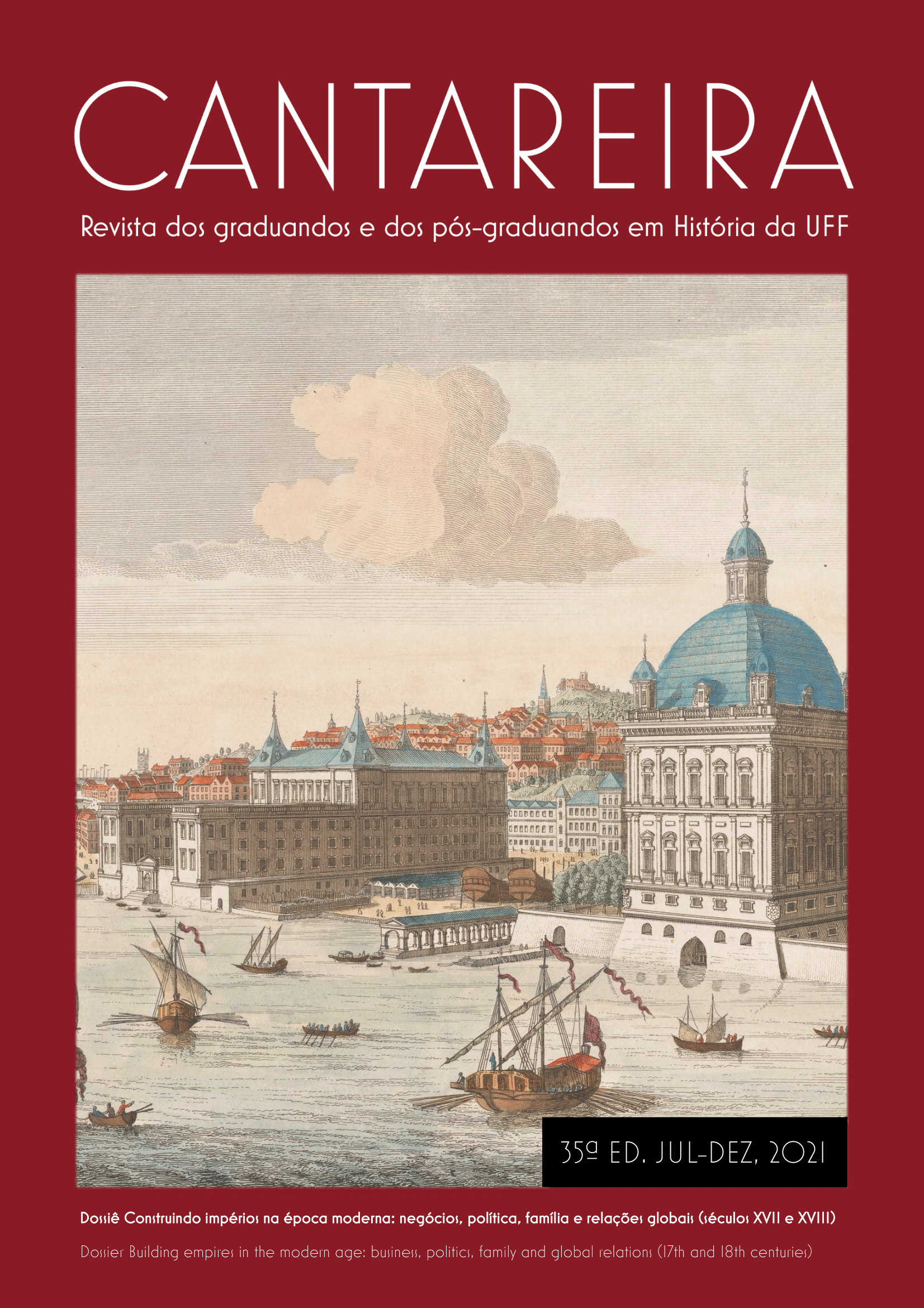Diplomacy and espionage in times of neutrality: the mission by Joaquim Xavier Curado in the Spanish settlements of the rio da Prata (1799)
a missão de Joaquim Xavier Curado nos povoamentos espanhóis do rio da Prata (1799)
Abstract
This paper aims to analyze the secret mission carried out by Lieutenant Colonel Joaquim Xavier Curado in the Spanish Viceroyalty of the rio da Prata, which took place in the year 1799. This operation concerns a sophisticated espionage initiative that involved several Portugueses administration levels in its organization and execution, connecting subordinate authorities and the high administrative level of Prince Dom João to the practice of espionage. In our study, we identified the direct action of the Prince Regent's office, which, through the use of an agent, sought access to privileged information about Spanish military facilities and forces. Furthermore, we observed that the operation itself showed a dubious stance by the Portuguese government: the mission that at the same time was spying, was inserted in the conjuncture of effective approximation between the Portuguese and Spanish government in an even greater layer of articulations and secrets that aligned the Lisbon government with its Iberian neighbor while distancing it from its traditional English ally.
Downloads
Downloads
Published
Issue
Section
License
Autores que publicam nesta revista concordam com os seguintes termos:- Autores mantém os direitos autorais e concedem à revista o direito de primeira publicação, com o trabalho simultaneamente licenciado sob a Licença Creative Commons Attribution que permite o compartilhamento do trabalho com reconhecimento da autoria e publicação inicial nesta revista.
- Autores têm autorização para assumir contratos adicionais separadamente, para distribuição não-exclusiva da versão do trabalho publicada nesta revista (ex.: publicar em repositório institucional ou como capítulo de livro), com reconhecimento de autoria e publicação inicial nesta revista.
- Autores têm permissão e são estimulados a publicar e distribuir seu trabalho online (ex.: em repositórios institucionais ou na sua página pessoal) a qualquer ponto antes ou durante o processo editorial, já que isso pode gerar alterações produtivas, bem como aumentar o impacto e a citação do trabalho publicado (Veja O Efeito do Acesso Livre






